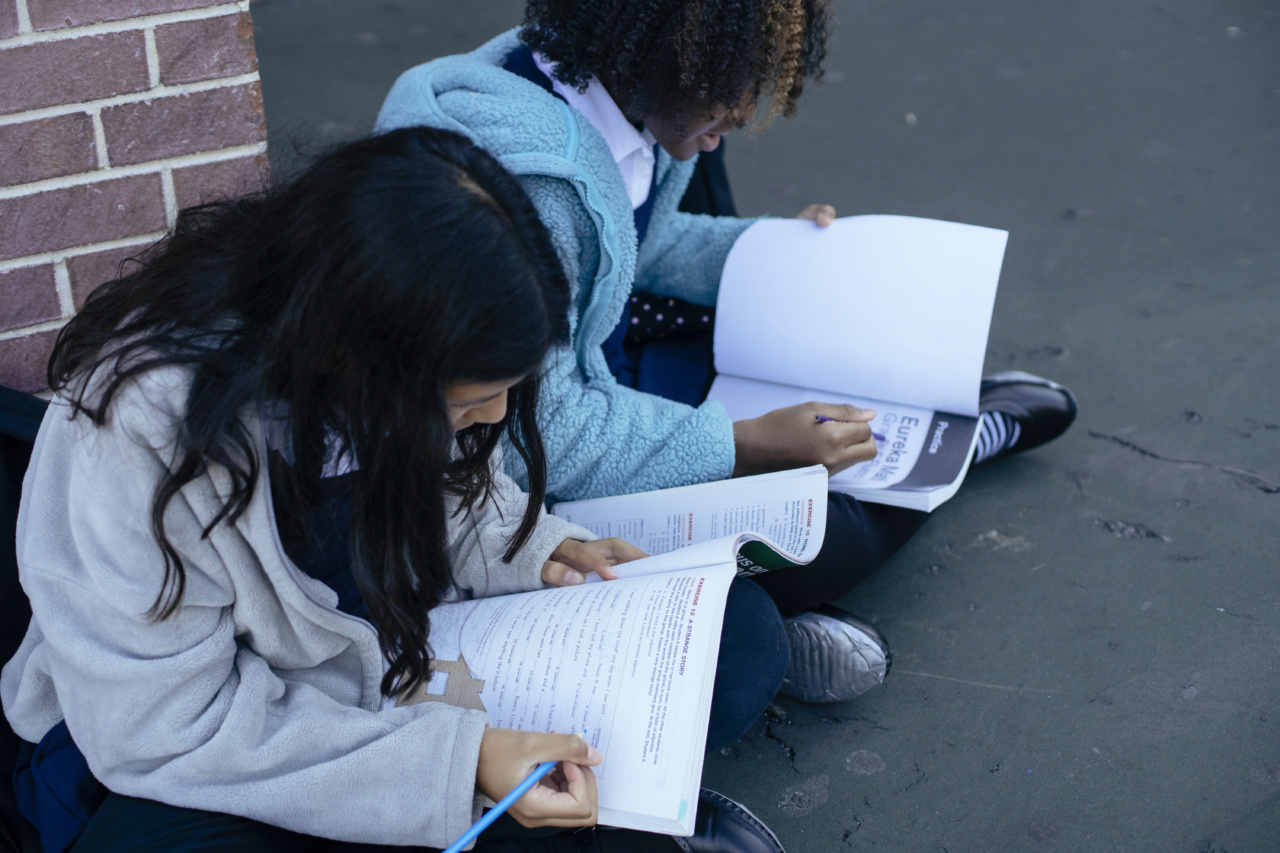Starting a new school year can be an exciting time for many children, but for others, it can bring about feelings of anxiety and distress. As a parent, it can be heartbreaking to witness your child struggling with school-related anxiety.
However, there are ways that you can support your child and help them navigate through these challenging emotions. In this article, we will discuss tips from psychologist Alexandra Kappatou on how to support your child through school anxiety.
Recognize the Signs of School Anxiety
Before you can support your child, it’s important to be able to recognize the signs of school anxiety. Some common signs include:.
- Difficulty sleeping or frequent nightmares
- Stomachaches or headaches before or during school
- Refusal to go to school or participate in school-related activities
- Increase in irritability or moodiness
- Trouble concentrating or completing schoolwork
If you notice any of these signs in your child, it may be an indication that they are experiencing school-related anxiety.
Communicate Openly with Your Child
Open and honest communication is key when supporting your child through school anxiety. Encourage them to share their thoughts and feelings with you without judgment. Create a safe space for them to express their concerns and fears.
It’s essential to validate their emotions and let them know that their feelings are valid.
Ask open-ended questions to gain a better understanding of what specifically is causing their anxiety.
For example, you could ask, “What aspects of school make you feel most anxious?” or “Is there anything in particular that makes you worry?” By actively listening to your child, you can gain insight into the specific triggers of their anxiety.
Establish a Routine
Creating a consistent routine can help alleviate some of the stress and uncertainty that can contribute to school anxiety. Establish fixed waking up and bedtimes, regular meal times, and designated study periods.
Having a predictable schedule can provide a sense of stability and control for your child.
Incorporate relaxation techniques into your child’s daily routine. This could include activities such as deep breathing exercises, guided imagery, or mindfulness exercises.
By teaching your child coping mechanisms to manage their anxiety, you empower them to take control of their emotions.
Encourage Healthy Habits
Encourage your child to engage in regular physical activities and get enough sleep. Exercise is known to reduce anxiety and promote emotional well-being. Physical activity releases endorphins, which are natural mood boosters.
Ensure your child is eating a balanced diet that includes plenty of fruits, vegetables, and whole grains. Proper nutrition plays a significant role in supporting overall mental health.
Collaborate with the School
Reach out to your child’s teacher or school counselor to establish open lines of communication. Inform them about your child’s anxiety and discuss strategies that can be implemented in the school setting to support their well-being.
Working together as a team can provide a comprehensive support system for your child.
Ask the school if they have any resources or programs in place to help students manage anxiety. Some schools offer counseling services or have peer support groups that focus on mental health awareness.
Teach Coping Skills
Equip your child with practical coping skills that they can use when they feel overwhelmed by anxiety. Some effective techniques include:.
- Deep breathing exercises: Teach your child to take slow, deep breaths to help calm their nervous system.
- Positive self-talk: Encourage your child to replace negative thoughts with positive affirmations.
- Visualization: Guide your child through imagining a safe and calming place when they start to feel anxious.
- Progressive muscle relaxation: Teach your child to tense and relax different muscle groups to promote relaxation.
By teaching these coping skills, you empower your child to manage their anxiety in a healthy and productive way.
Encourage Social Connections
Social support is crucial in managing school anxiety. Encourage your child to develop friendships and engage in activities that they enjoy. Peer relationships provide a sense of belonging and can help decrease feelings of isolation.
If your child is struggling to make friends, consider enrolling them in extracurricular activities that align with their interests. This can provide an opportunity to meet like-minded peers and expand their social circle.
Model Healthy Coping Strategies
Children often learn by observing their parents’ behavior. Show your child healthy coping strategies by managing your own stress and anxiety effectively. Take time for self-care and demonstrate activities that promote relaxation and well-being.
It’s essential to create an environment where open discussions about mental health are encouraged. Normalize conversations about emotions, stress, and anxiety, emphasizing that seeking help is a sign of strength.
Know When to Seek Professional Help
While the above strategies can be effective in managing school anxiety, it’s important to know when professional help may be necessary.
If your child’s anxiety significantly impacts their daily life, such as their ability to attend school, make friends, or engage in regular activities, consider seeking guidance from a mental health professional.
A qualified psychologist or therapist can provide specialized support and interventions tailored to your child’s needs.
They can help your child develop effective coping strategies and work through any underlying issues contributing to their anxiety.
Remember, everyone’s journey with anxiety is unique, and it may take time to find the most effective support for your child.
By being patient, understanding, and utilizing the tips provided by psychologist Alexandra Kappatou, you can make a positive difference in your child’s experience with school anxiety.























